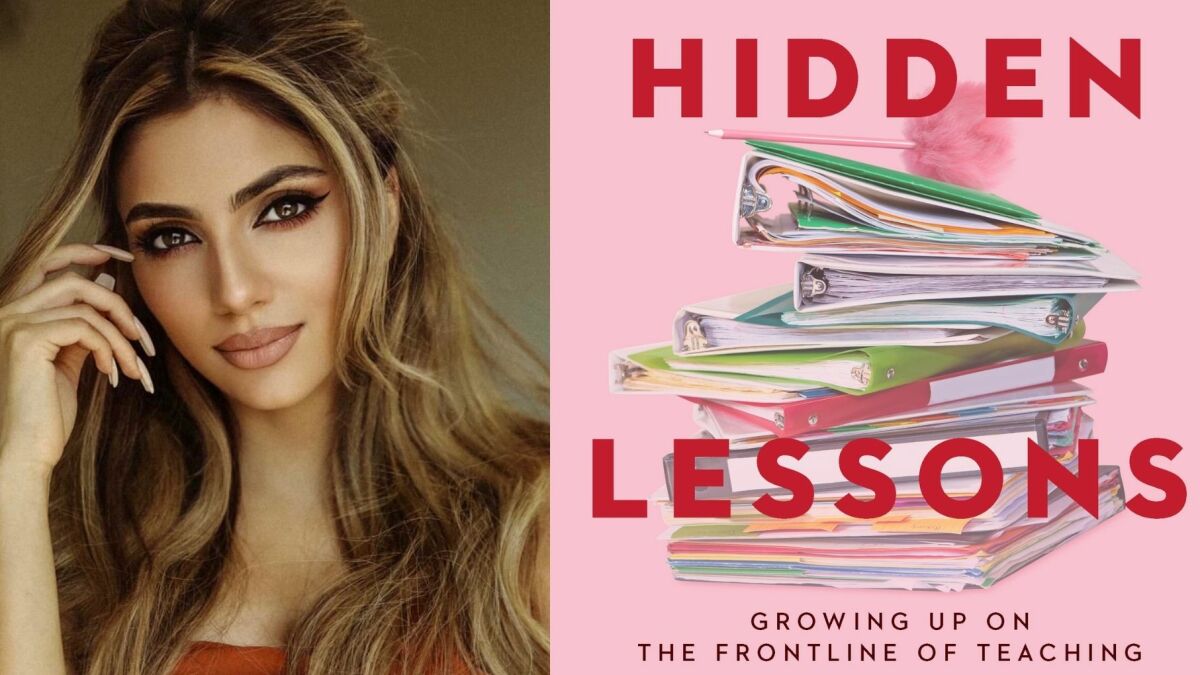Entertainment
Mehreen Baig unpacks reform and resilience in the UK education system

The UK education system is in need of reform. In schools across the country, underfunding and lack of equal opportunity hinder the future of students. In fact, the British education system currently ranks 16th in terms of inequality amongst secondary schools, and 23rd when it comes to primary schools. The pandemic further exposed these inequalities, unmasking the disparity when it comes to learning institutions in different parts of the UK. The impact on disadvantaged students and their learning opportunities was vast. This includes a stark digital divide: for instance, the Sutton Trust (a nonprofit championing social mobility through education) found that 15 percent of teachers said that more than a third of their students did not have access to electronic tools for sufficient learning.
These imbalances and the subsequent need for change are the essence of what Mehreen Baig, former teacher, current TV presenter, and online personality, unpacks in her debut book Hidden Lessons. Released in September, it urgently tackles the sprawling subject of the UK’s schooling system, where Baig once worked on the frontlines as a secondary school teacher in north London.
From a deeply personal angle, Baig outlines the ingrained injustices in education — such as lack of scholarships for disadvantaged students, racial stereotyping in schools, and insufficient learning resources — alongside the subject of resilience, painting a picture of both the highs and lows. Throughout, she recalls the emotional connection she shared with her students, what she learned while teaching them, and memorable moments throughout. Some of these stories are undeniably amusing (Baig weaves in humour within the classroom and outside), but some are simply heart-rendering, including her recollection of young boys being pulled into lives of violence. Through each of these anecdotes, Baig delivers a greater message.
Mashable spoke to Baig to discover more about her novel, the British school system, and the perseverance of students and teachers alike throughout the country.
Mashable: How does the current education system benefit students? How can it improve?
Mehreen Baig: One benefit of the current education system is the social interaction students get — young people get the opportunity to mix and interact with people from different cultural and social backgrounds and that integration is really important for social cohesion and a sense of community in the adult world. So, when it’s done well, it’s really significant.
The current British school system also provides a strong educational foundation where every child has access to some form of education for free. However, there is a huge disparity between the state sector and private sector — issues like teacher retention rates, student outcomes (Russell Group universities, Oxbridge), expanded class sizes, unmanageable teacher workload, can all only improve through funding. The government must invest in schools and teachers to get some sort of parity between the state and private sector, and to ensure that all young people have an equal chance of success. We also need to look at what is actually being taught in schools, putting less emphasis on training students for exams and instead teach them skills that will support students in their later lives when they have left school.
Your book incorporated so much humour and warmth, with larger societal discussions. Was this an intentional balance?
Yes, I didn’t want the book to feel like I was preaching to the reader, or like I was stuffing my opinions down their throats, or like I thought I had all the answers…because I don’t. I wanted the book to reflect the complexity of emotions you feel as a teacher. I wanted the readers to experience the same emotions that I did on my journey. And that was a burning desire to protect the children from the various challenges they were facing, but also a whole lot of love and happiness.
For me, personally, reading has always been an escapism, so I wouldn’t necessarily enjoy reading a book that was purely commenting on larger societal issues — and I didn’t want people to switch off when reading my book either. It was important to me that I raised those issues in an accessible and human way. As much as the book is a social commentary, it is also the very human story of me growing up, of my family, my love life, my students’ lives, their families…getting that balance right was crucial. Resilience is at the heart of teaching and sometimes I found that teachers laugh through the trials as a coping mechanism; I wanted to tell the tales through empathy and capture those lighthearted moments whilst simultaneously conveying a serious message.
How do you think reforms can be implemented?
Reforms can only be implemented through funding — the majority of issues facing British schools and young people today are a direct result of years of underfunding. The government needs to give schools and teachers more autonomy in what they teach and how they teach it, and need to give them the money and resources to do it properly. We need to revisit the curriculum and think about who it is serving, whether it is setting educational standards or if we are making changes for the sake of making changes. More funding will allow schools to hire more staff, hence allowing smaller class sizes and greater freedom and creativity in subjects and lessons.
“The book is a tribute to all the young people who carry on laughing and fighting, despite the adversities they face.”
You frequently mentioned your emotional connection to your students. Are these relationships you still think about?
The best thing about my teaching career was the connection I had with my students. You become a pillar of support for them, you are their guide and their mentor, and when you play such a huge role in someone’s life, the connection you form is lasting. We went through a lot together – I was with my students through some of their best and worst times, and they saw me at some of my highest and lowest points too. There are few relationships that are as open, raw and honest than that of a teacher and student. I think back to what certain students may be doing today, I think about the fun we had and sometimes, when I’m searching for some strength or motivation, I think back to difficult times we got through together and that gives me the power to carry on.
You wrote about Yasser, a student who was nurtured and found a healthy path to learn, achieve and eventually be an inspiration for his fellow students. For students like Yasser, what kind of resources and support are essential for that kind of growth?
It is so important that stories like Yasser don’t just happen once in a blue moon. Teachers need to be able to spot that potential in their students, and in order to spot and nurture that talent, they need to have time, energy and space — which comes back to funding. Schools need to be able to implement mentoring facilities so when students do become successful, they don’t feel like outsiders and are able to stand shoulder to shoulder with those who have been tutored for years and who come from privileged backgrounds. More scholarships places need to be available — private schools should be forced to give more scholarships so more students have those options.
Students need access to basic resources like laptops, they need more space in schools to train and practice, and specialist staff to coach and train them. Families need to be supported along with students and as well as all this, there needs to be more visibility to make students believe these routes are possible and achievable; if young people see something as a viable option, they will pursue it.
What impact do you hope your book can have on teachers and students alike?
I see this book as both a celebration of teaching and a warning for new teachers. During the pandemic, when education was thrust into the headlines, it became clear how little understanding people have of both the teaching profession and the challenges young people in Britain face. Teachers were called lazy and idle and faced so much abuse, which was one of the main catalysts that inspired me to write about my own experiences.
I hope this book highlights the reality of the job and makes teachers feel like their work is valued and noticed. I also hope this book makes young people feel heard, bringing their stories to the forefront; the book is a tribute to all the young people who carry on laughing and fighting, despite the adversities they face.
Hidden Lessons by Mehreen Baig is out now.
-

 Business7 days ago
Business7 days agoHumanoid robots are learning to fall well
-

 Entertainment6 days ago
Entertainment6 days ago2024 summer TV preview: 33 TV shows to watch this summer
-

 Business6 days ago
Business6 days agoGoogle Gemini: Everything you need to know about the new generative AI platform
-

 Business4 days ago
Business4 days agoHaun Ventures is riding the bitcoin high
-

 Entertainment5 days ago
Entertainment5 days ago‘Bridgerton’: Everything you need to remember before Season 3
-

 Entertainment4 days ago
Entertainment4 days agoHands-on with the Claude AI app: It’s pleasant to use, but janky
-

 Entertainment3 days ago
Entertainment3 days ago5 essential gadgets for turning your home into a self-care sanctuary
-

 Business6 days ago
Business6 days agoIndian ride-hailing giant Ola cuts 180 jobs in profitability push






















